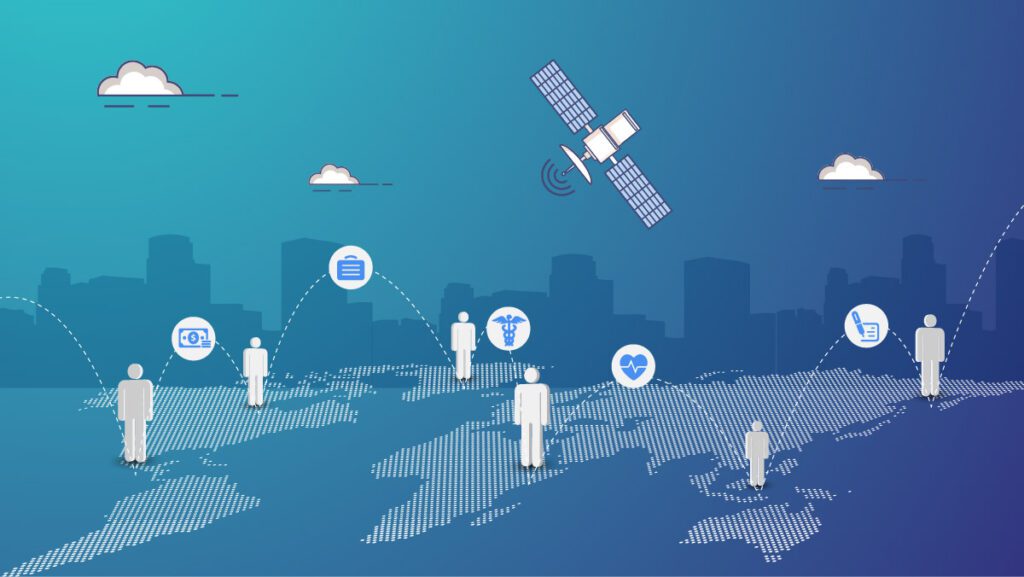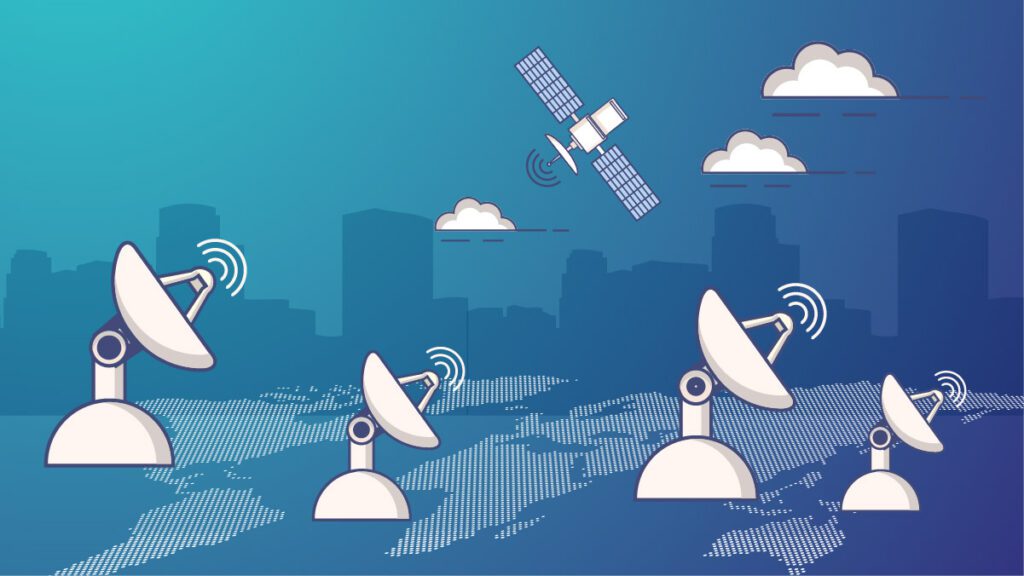
The telecom evolution has been happening at a considerably fast pace. Civilizations flourished around the latest advances in technologies that allowed communications between distant parties. From smoke signals to pigeons and hawks, wireless communications went through several stages of evolution until reaching the current global connectivity we enjoy. The impact of telecommunications on society has not only been related to enabling voice and data connectivity, but it has also contributed significantly to improving the quality of life and provided individuals with the means to face disasters, and other less significant daily life problems.
Telecommunications For Global Connectivity
The biggest impact telecom has been having on society is dissolving distances to create a connected world. The invention of wireless telegraphy by Marconi in 1901 and the transmission of the first radio signal across the Atlantic Ocean was the first precursor to the current telecommunications era. The work of Claude Shannon in 1948 laid the foundations of current digital communication systems we presently use. The evolution towards the fifth generation of wireless communications, the predominance of Wi-Fi connections, the proliferation of web and mobiles apps have all contribute to make the world as small as the click of a button.
Telecommunications as a Facilitator for Remote Working and Learning
The latest pandemic which has not ended yet, has taught us the importance of telecommunications as a key to survival. What has been seen as an unessential commodity has turned out to be a main method for survival, without which, most industries and businesses would have collapsed. In a period where lockdowns were preponderant, telecommunication systems have constituted the oxygen of the society.
Remote learning has also been an addition to large pool of telecom use cases. With schools closed, the telecom infrastructure replaced the institution’s physical premises. The pandemic coincided with the deployment of 5G networks around the world. Therefore, several uses cases were developed to make use of the latest technology. Blended learning modules, virtual and interactive classrooms activities were developed by exploiting the available technologies provided by telco operators, to fill the gap imposed by the lengthy lockdowns.
As the pandemic eased up a bit, several businesses continued to have remote or hybrid working opportunities as this model proved to reduce operational costs without having to sacrifice the quality of work. In a sense, the presence of solid telecom infrastructure provided businesses with the tools to slowly get out of economic recession.
Telecommunications as an Enabler for Digital Transformation
Artificial intelligence, cloud computing, and internet of things (IoT) have been with telecommunications the main pillars of digital transformation which aims at changing the society we live making it “smarter”, and much more driven by continuously generated data. The success of the digitalization process is highly dependent on the quality of the telecommunications infrastructure. As the digitalization and telecom evolve in synergy, the way we complete our daily tasks will be completely disrupted, as the daily activities will be performed digitally, and the interaction will mainly be with machines and computers.

Telecommunications as a Means for Innovation
The biggest contribution of telecommunications for today’s society is innovation, regardless if the innovation is beneficial or not to society. Several innovative solutions are inherent to progress in the telecom field.
Metaverse
The Metaverse is probably the future society we will possibly live in, in the future. This digital world that is attracting investments from different companies trying to own some part of this ecosystem, can certainly not exist without an underlying telecom infrastructure. To this end, telecom operators are the true enablers of the Metaverse. With this project, telecommunications will be indirectly and radically changing the structure of the society.
Cryptocurrencies
The other big thing that dominated the last decade is related to this decentralized currency, that envisions a financial paradigm that circumvents the dominating role of banks. With transactions stored on a blockchain which is available to anyone in the network, the telecom industry has provided the society with a new mechanism for financial transactions. Any commodity can now be purchased using cryptocurrencies, without relying on fiat currencies backed by banks.
Telecommunications For Better Health Services
The pandemic has not only emphasized the role of telecommunications as a central element to keep vital sectors alive. It has changed how health services are provisioned. The difficulty for doctors to reach their patients has increased the adoption of telehealth services. When coupled with IoT and wearable solutions that continuously collect patients’ data, telehealth services have provided low-cost means to treat patients, replacing traditional costly hospital visits. The democratization of healthcare in society requires a strong telecom infrastructure needed for the continuous transmission of data. With upcoming telecom evolutions, digital twins will be the next big thing in the healthcare industry.
Negative Impact of Telecommunications on Society
The evolution of telecommunication networks and the increasing reliance of people on the developed services has created a digital society that lacks the necessary physical interactions. Social gatherings and events have had less importance in favor of social media activities and multiplayer gaming platforms. Even if physical events are taking place, attendees are most of the time immersed into their mobile phone. Advances in telecommunications have created a segregated society with newer generations preferring to remain isolated in their digital word, away from their older relatives. Normal family bonds have slowly been transforming into distant digital connections. This trend amplified by the pandemic, illustrates the collateral damage that technological evolution has on the society. No matter how technology and telecom in particular facilitate our daily life, we need to be always ready to pay the price in terms of our interactions with the surroundings.
Summary
The currently advanced society is indebted to telecommunications for the evolved state it has reached. The way we complete our daily tasks has been greatly simplified through the use of our communicating devices. The effects of global disasters are also less detrimental with telecom network providing a safety network where businesses and other vital sectors can offload their activities to the digital world to survive. As we gain a lot, we have to pay a price as technology promotes increased isolation and progressively fewer social bonds.
“Inside Telecom provides you with an extensive list of content covering all aspects of the tech industry. Keep an eye on our Telecoms, Technology, and Impact space to stay informed and up-to-date with our daily articles.”